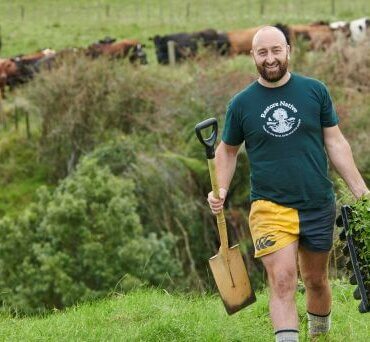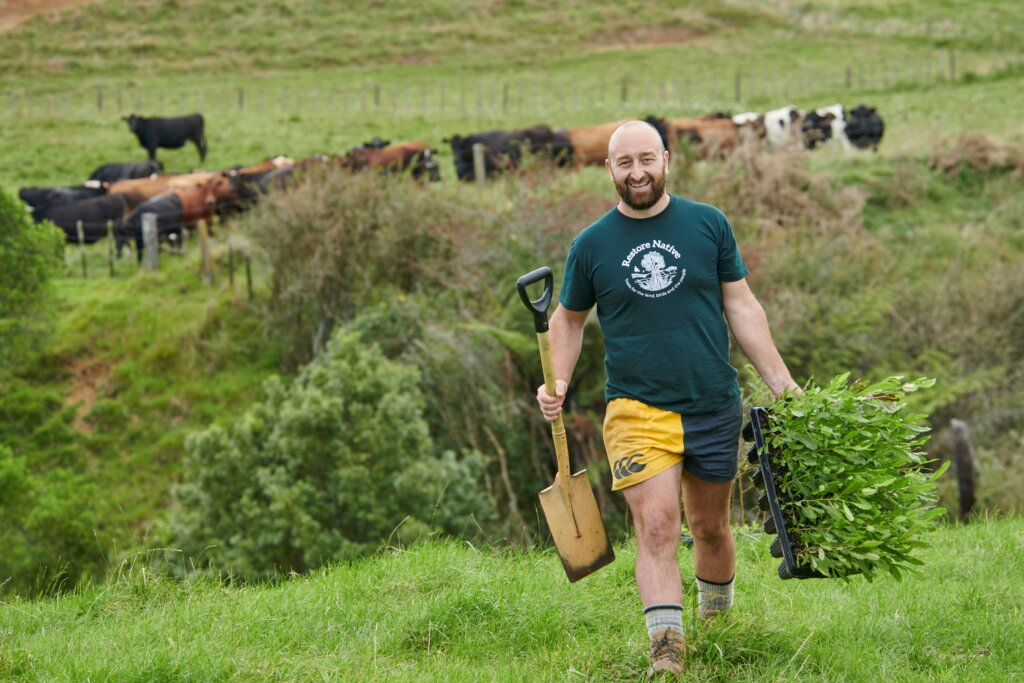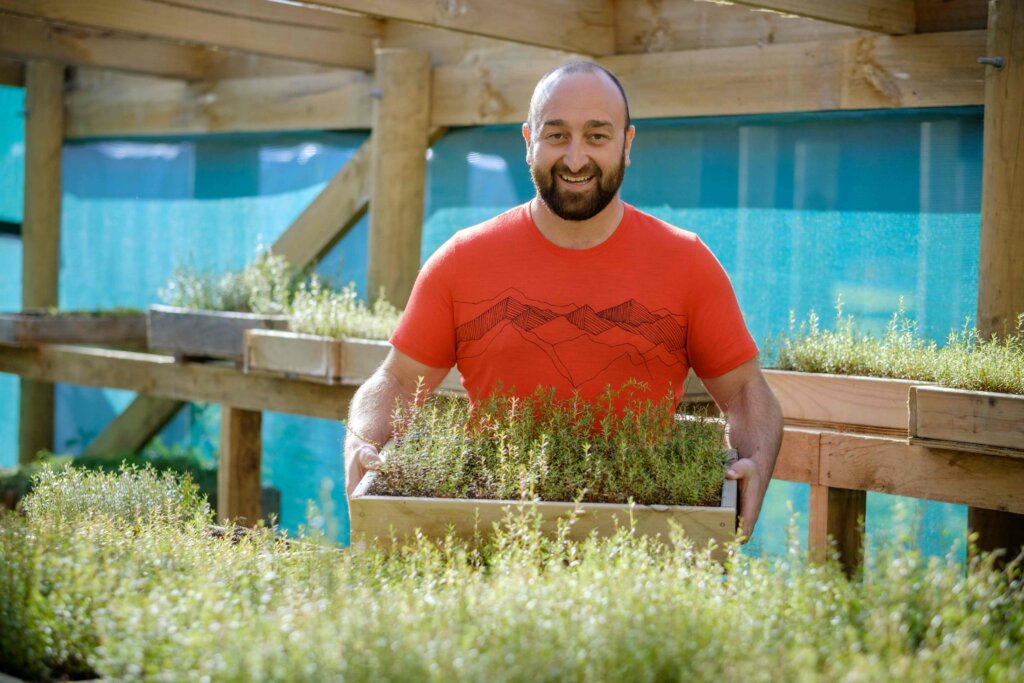

Restore Native founder Adam Thompson.
Adam Thompson’s success is, literally, growing.
The Te Miro farmer has won a national conservation award after planting one million native trees in his Restore Native nursery last year – and on-selling the seedlings to roughly 200 farmers looking to undertake planting projects North Island-wide.
Restore Native provides seedlings like Mānuka, Kanuka, Pittosporum, cabbage tree, flax and kōwhai – the majority of which Thompson says will go into riparian planting, planting next to streams and riverbanks, and be used when fencing off waterways and steep, erosion-prone land.
For his efforts, Thompson won the 2023 Primary Industries New Zealand Guardianship and Conservation, or Kaitiakitanga, award in early July.
Now, he’s looking to the future, with Restore Native tipped to grow more than 1.5 million native trees next year.
“Personally, even on the wettest, coldest, muddiest days, when you’re planting trees it’s absolute gold.”
“Honestly, I want to put myself out of business, in a sense. I’d love every piece of non-suitable farming land in New Zealand to be native trees.
“I was over the moon,” he said of winning.
“It’s said if you find your passion, you’ll never work a day in your life. I’ve absolutely found mine. What’s even more amazing is how this encourages our team.”
At the height of Restore Native’s “busy season”- April through October – about 16 people work with Thompson.
“They all wholeheartedly believe in what we’re doing. You don’t come along to plant trees outside in the rain and mud in the middle of winter unless you do.
“Personally, even on the wettest, coldest, muddiest days, when you’re planting trees it’s absolute gold.”
Thompson, a mortgage broker in Cambridge since 2007, turned farmer, first grew trees on his land about a decade ago.
He has owned his 175-hectare Te Miro farm for about five years – and allocated five of those hectares, including roughly 1000 square metres of green houses, a potting shed with automated potting lines and plant production spaces, to Restore Native’s work.
The remainder of the farm on which Restore Native sits is home to 200 beef – or Charolais – cattle.

Adam Thompson in his nursery.
About 50 of those 175 hectares are now native trees.
Simply put, Restore Native was born out of a desire to find a simpler, more cost-effective way to source those native trees.
“Planting them is something I’ve always been incredibly passionate about – I knew there had to be an easier way of sourcing them, because I was in that position wanting that myself.”
Thompson describes his environmental passion as a partnership.
“I believe every farm should be a mix of productive areas on which we farm, grow food, feed people, create jobs and stimulate the economy. Unproductive areas which can’t be farmed should be put back into native trees.
“The majority of farmers already think intergenerationally about how they can leave their land better than how they found it when it comes to biodiversity.”
When talking intergenerationally, Thompson makes a thought-provoking point.
As a father of two – Clara, 7, and Maverick, 4 – he’s glad his children are growing up at Restore Native.
“They love it. Importantly too they see the tangible difference it makes. I get a bit reflective in those moments. My grandparents on both sides were also environmentally conscious.
“One of my grandfathers, also a farmer, was incredibly passionate about an area of trees he’d fenced off on his land.
“My other grandparents were viticulturalists, or wine growers. I spent a lot of time in those environments.
“I suppose growing trees is in my blood, and formative to who I’ve become. So, to share what I’m doing now with my family and see their passion is awesome.”
To that end, Thompson gifts a proportion of his plants to community and school groups every year.
“In giving back in that small way, we’ll hopefully spark a passion for the environment in the next generation.”








